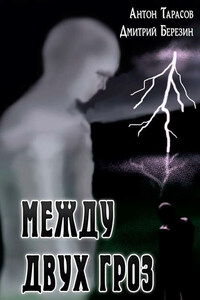CHAPTER I
THE MAGIC CASTANETS
Pilar was dancing in the Murillo (mū̍-rĭl´ō) Garden. It was a beautiful public garden named after the great Spanish painter, Murillo, who died in a house near by.
Pilar had been born ten years ago in this old city of Seville (sē̍-vĭl´). If you had asked Pilar, "Where is New York?" she would doubtless have laughed with her lovely dark eyes and inquired, "Is it in Seville?" Because, to Pilar, as to most of her friends, there was only one world, and that world was Seville.
Now a terrible thing was happening at Pilar's home this evening. But Pilar did not know it because she was dancing in the garden. Every night, after her grandfather went to bed, she ran off and danced with her friends to the music of a hurdy-gurdy.
But tonight, after Pilar had left, her grandfather had been taken very ill. The neighbors had sent for a doctor, who shook his head gravely over the poor old man.
Pilar knew nothing about this as she clicked her castanets and whirled about in the dance they call the Sevillana.
She was one of the best dancers in her group. And why not? Her mother had been a dancer; her grandmother, too, yes, and her great-grandmother and her great-great – oh, ever so many great-grandmothers! They had all been dancers.
Pilar's parents had died when she was a baby. She lived alone with her grandfather, and they struggled to keep the wolf named Hunger from their door. Her grandfather was a shoemaker, but he worked slowly these days because his hands were old.
Once when Pilar was very little, someone had asked her what pleasures she enjoyed most. She had answered, "The pleasures I enjoy most are – dancing!"
Now this could easily be the answer of every little girl in southern Spain. For while Italy sings, France designs, and Switzerland skates, Spain dances. Why, it is even possible that little girls in Seville would rather dance than go to moving picture shows!
Yet everyone in Seville does not feel that way, for the many open air theaters all over the city are crowded. And what the people seem to like best are the American comedies.
It was growing late, but Pilar seldom went to bed before midnight. She would have told you that evening was the time to live and to laugh and to dance. Then it was cool, while during the day the sun beat down cruelly and people slept for hours.
Through the narrow streets Pilar made her way home at last. She heard little snatches of song from the throats of strollers.
Everyone strolls in Seville; there is no hurry. Nearly everyone sings; there is no worry. Hurry and worry are as much out of place in this city as a woman's hat shop. For white flowers and black lace shawls take the place of hats in Seville.
Pilar hummed to herself as she walked along. Some day she would grow up to be a great dancer like her mother and —
What was that? A light in her house? She looked through the window and saw the doctor bending over her grandfather's bed.
Pilar caught her breath. Then she rushed indoors and ran straight to her grandfather's bedside. Sinking down on her knees, she burst into tears.
"Oh, Grandfather!" she cried. "You are ill! Dear Grandfather, what is the matter?"
The doctor smoothed her soft, black hair and raised her to her feet.
"There, now, my child," he said. "You must not cry. You will only make your grandfather worse. He will get well if you will do what I tell you."
"What – what is that, doctor?" Poor Pilar was trembling.
"You must buy and cook good, nourishing food for him," said the doctor. "And give him the medicines which I order."
Now Pilar's eyes were full of terror. "But, oh, doctor," she cried. "I cannot do that. We have no money."
"No money?" The doctor looked at her pityingly.
"We live by what Grandfather makes when he can work," said Pilar. "Now that he cannot work, there will be no money."
The doctor said, "Um-m" and stroked his beard. Then he asked, "Have you nothing which you might sell?"
"Only – " And Pilar gazed into her tiny cubbyhole of a room next door. "Only an old wooden chest filled with souvenirs, left to me by my mother." She added in a whisper, "I could not sell them!"
The doctor was silent for a moment. Then he said, "I am afraid you must sell them, Pilar, if you wish your grandfather to live."
When the doctor was gone, Pilar went into her room and looked at the precious wooden chest. In it were the souvenirs which her mother had collected throughout her interesting life as a dancer.
The doctor had given her grandfather medicine, and now he slept. But what would happen in the morning?
Pilar shuddered. She was only a little girl, and she was afraid. The doctor had said that her grandfather must have the best of everything, or maybe he would die.
A tear splashed down upon the old, carved chest. There was only one thing to do. Tomorrow she would go into town and sell one of her mother's souvenirs so that she might buy medicine and food.
She brushed away the tears and began to look through her treasures. There were a tall, graceful comb; a faded, but elegant fan; a richly decorated old bonnet; oh, such lovely things! How could she ever part with them?














